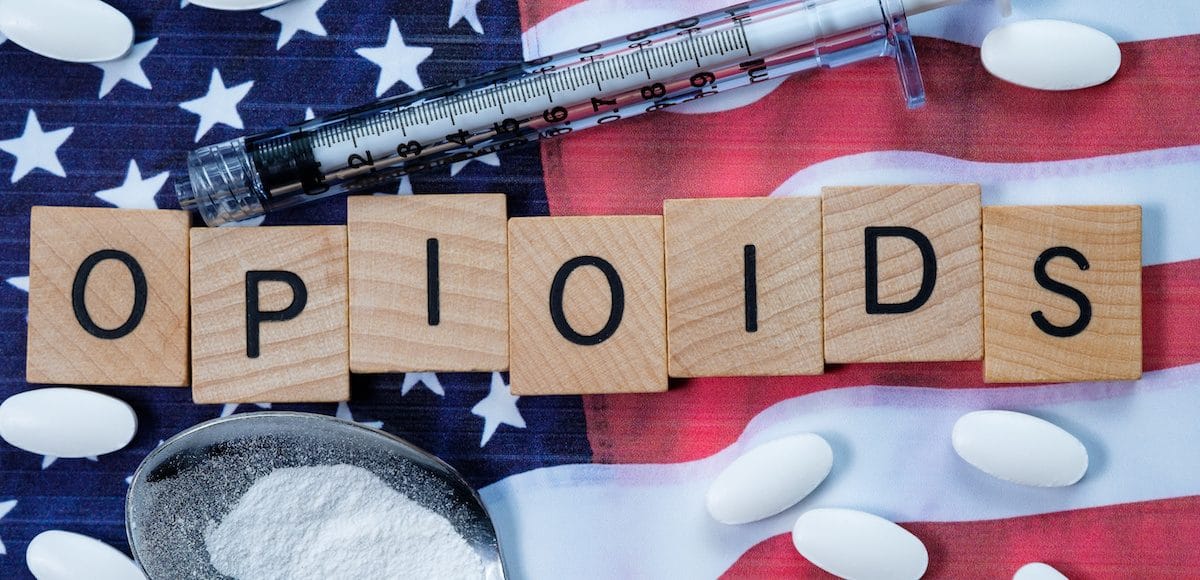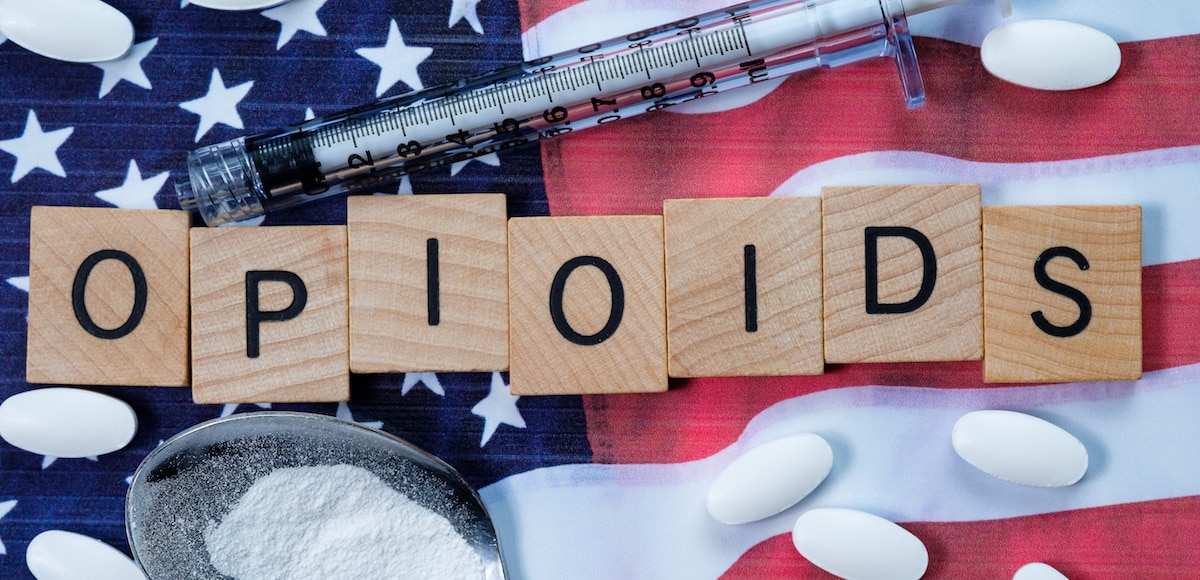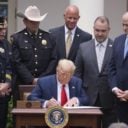

Scrabble-like text depicting opioids on an American flag to underscore the opioid epidemic in the United States. (Photo: AdobeStock)
The White House praised the bipartisan passage of the Opioid Response Act of 2018 (H.R. 6) in the U.S. Senate. The upper chamber voted Monday 99 to 1 to provide for opioid use disorder prevention, recovery, treatment and more.
“We commend the Senate for passing its Amendment to H.R. 6, the Opioid Crisis Response Act of 2018,” White House Press Secretary Sarah Sanders said in a statement. “This critical bipartisan legislation is a major step forward in the whole-of-government approach to combating drug demand and the opioid crisis.”
The U.S. House of Representatives passed H.R. 6 back on June 22, 2018. The more Republican-dominated lower chamber has been more productive and fruitful than the upper chamber, which left 300-plus legislative items approved by the House on the table.
“This bill would help reduce the amount of illicit fentanyl entering the United States, improve treatment for infants suffering from neonatal abstinence syndrome, create job training programs for those in recovery, and reauthorize the Office of National Drug Control Policy to continue overseeing Federal drug control efforts, including public awareness initiatives targeted to individuals of all age groups,” Secretary Sanders added.
Ironically, despite the conservative origins of what ended up a bipartisan bill, the sole “No” vote came from Republican Utah Senator Mike Lee.
President Trump campaigned on combating the opioid crisis and, as commander-in-chief, has made the scourge of opioid abuse a central focus of his administration. Most recently, the administration released a set of advertisements promoting awareness to opioid addiction among young people.
“No one individual has done more to raise awareness of our country’s opioid crisis than President Trump,” Health and Human Services (HHS) Secretary Alex Azar said at the time. “Raising awareness is a key piece of defeating the threat of opioid addiction, which too many Americans still do not fully understand.”
The passage of the Opioid Response Act of 2018 was the latest initial from the White House.
In April 2017, the Trump Administration announced it would provide grants to all 50 states to combat opioid addiction. The funding was the first of two rounds to be allocated under the 21st Century Cures Act.
In August 2017, President Trump officially declared the opioid crisis a national emergency. The Commission on Combating Drug Addiction and the Opioid Crisis said that executive action would make the opioid crisis a top priority and allow the Cabinet to take “bold steps” against drug abuse.
In March 2018, the White House unveiled the Initiative to Stop Opioids Abuse and Reduce Drug Supply and Demand. The three-pronged strategy targets the factors the Commission and others identified as fueling the opioid crisis, including increased prosecution of those fueling the crisis.
The Justice Department (DOJ) recently announced on the 500th day of the Trump Administration that they have added 311 new Assistant U.S. Attorneys “to assist in priority areas” such as the opioid criss, immigration and violent crimes. It is the largest increase in AUSAs in decades.
Along with enforcement, awareness is a major part of President Trump’s three-pronged initiative, which calls on government to play a greater role in educating “Americans about the dangers of opioid and other drug use and seek to curb over-prescription.”
The National Institute of Drug Abuse finds nearly 80% of heroin users started with prescription opioids. From 1999 to 2016, overdose deaths as a result of heroin use increased 7x, and deaths from synthetic opioids such as fentanyl has risen by nearly 21x.
Every day, more than 115 Americans die from opioid overdoses. That’s more than one person every 15 minutes.
“The President and his Administration continue to work toward and implement effective policies to address the opioid crisis and save lives,” she concluded. “The Administration looks forward to working with both chambers as the legislative process continues to get a bill to the President’s desk to mitigate this crisis next door.”






